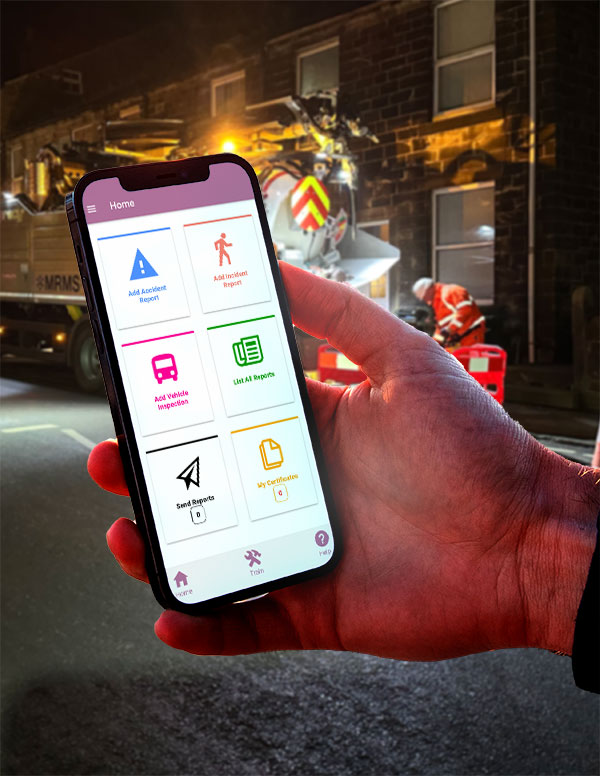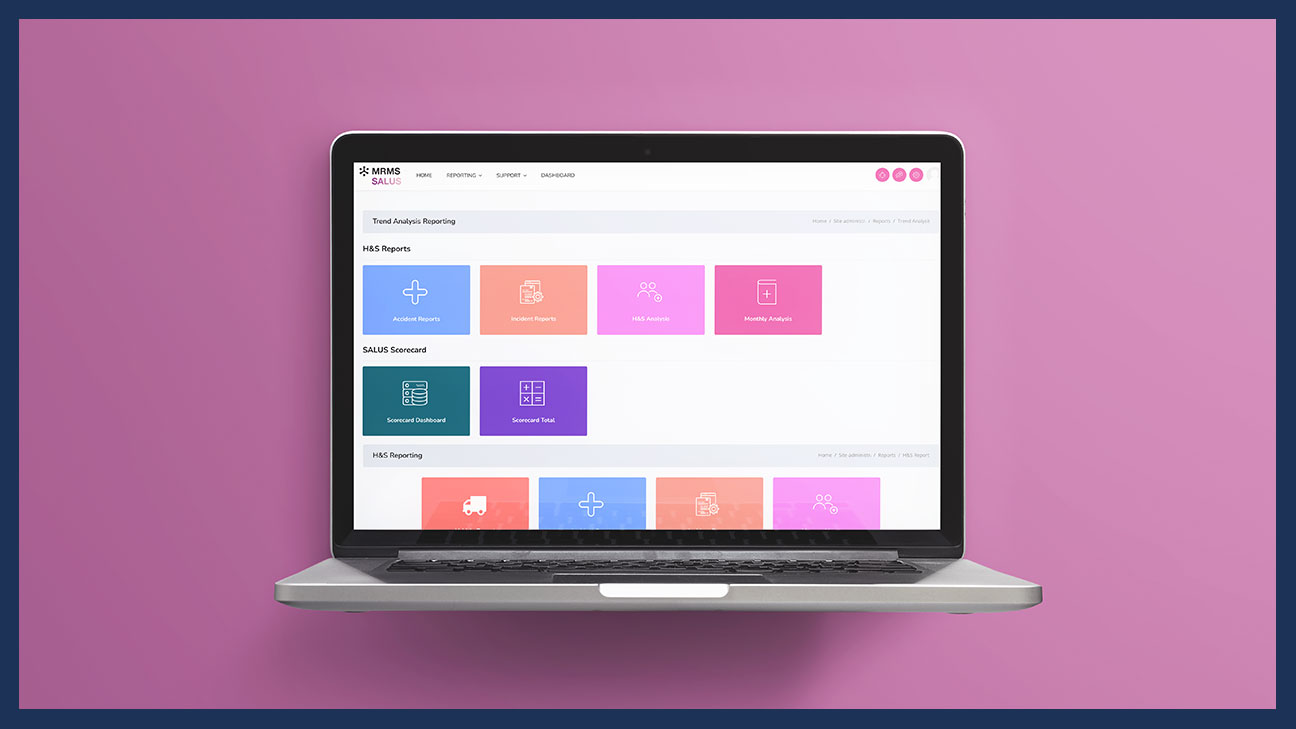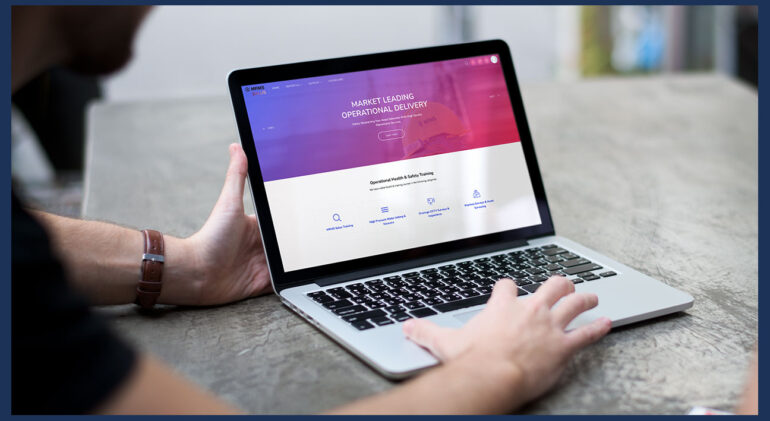The nature of work in the drainage industry means encountering hazards and dangerous situations. With the safety and well-being of employees of paramount importance, complying with industry standards and having a thorough HSE reporting system can be the difference between winning or losing work with utility companies and main contractors.
In the field, operators are responsible for reporting incidents, near misses or positive observations, minor or otherwise. As anyone who has worked on-site will attest, this can mean a lot of time-consuming paperwork.
That’s why MRMS has developed Salus, an innovative, cloud-based health and safety management and compliance platform designed for drainage and utility operatives and back-office teams. Through our years of experience in the industry, we have identified the most efficient way for collecting and analysing data in real time, identifying areas of concern, implementing corrective measures, and ensuring adherence to regulatory standards – without the paperwork!
These reports are indispensable to an organisation. Analysing data on incidents, near misses, and hazards allows businesses to identify patterns and emerging risks. This enables teams to collaborate and implement preventative measures. What may seem minor in terms of the type of incident reported, is in fact invaluable data.
Accidents and incidents are unpredictable, so the bigger the pool of data collected, the more likely it is for an organisation to identify systemic failures. All this leads to organisational benefits such as enhanced safety protocols, risk mitigation, better compliance, employee engagement and organisational culture.
Salus On-Site Operation

Whilst health and safety reporting platforms are not new to the industry, the average out-of-the-box solution can include many features with no relevance to contractors in the drainage sector. Based on many years of experience, the Salus platform has been developed with the wastewater industry as its focus.
In the field, users have the platform literally to hand, in the form of a simple and intuitive app on their mobile devices. The app has a few options:
- Accident Report: Enables users to record and document details of an accident
- Incident Report: Enables users to record and document details of an incident or near miss
- Vehicle Check: Enables users to conduct and log checks on vehicles, ensuring safety and Compliance
Each report submission is an easy-to-use form that prompts the user to ensure high-quality information. Users fill in the form at the time of the event and it is relayed to the back office teams, where situations can be monitored and analysed in real-time.
It also has the advantage of involving field operatives more in organisational processes. No employee is more aware of risks that can impact the business than those out there every day. With Salus, this level of engagement involves field operatives at a deeper level, provides a sense of ownership and breeds a more widespread culture of safety and compliance.
Also featured in the app menu is the Training section. Training modules can be pushed out to operatives and back office staff for completion, and warnings issued to users when certificates are due to expire. This ensures easy-to-manage training and qualification compliance.
Salus in the Back Office

Through its ability to collect high-quality data and transmit it directly from the field to the back office, Salus provides a series of features that give businesses distinct advantages in terms of risk mitigation and potential cost savings. Key back-end features include:
Health & Safety Reporting
Live updates on accidents, incidents, and near misses are sent straight from the site through the Salus mobile app, helping to reduce health and safety risks for your business
Trend Analysis
Actively pinpoint trends in operational work streams to enhance the health and safety culture throughout the organisation
Information Management
Making historical and current data easily accessible, automating management information processes, and generating dated audit trails for compliance reports
How Salus can Benefit Drainage Contractors
Salus was developed in response to a major need in our industry – the ability to mitigate risk in real-time and streamline compliance management. It brings with it some significant advantages for drainage and utility businesses, including:
- Risk Management: It helps in identifying and assessing potential risks in the field, allowing organisations to take proactive measures to prevent accidents and injuries
- Compliance: It enables organisations to comply with health and safety regulations and standards set by authorities, reducing the risk of legal penalties or fines
- Resource Allocation: By analysing data on incidents and hazards, organisations can allocate resources effectively to areas where they are most needed, optimising investment.
- Performance Monitoring: It provides insights into the effectiveness of health and safety initiatives, allowing organisations to monitor progress, identify trends, and make informed decisions for continuous improvement
- Employee Engagement and Training: It tracks training completion, monitors employee adherence to safety protocols, and identifies areas where additional training or reinforcement is required
- Culture of Safety: Promoting transparency and accountability it contributes to fostering a culture of safety within the organisation, where employees are actively involved in promoting and maintaining safe working practices
Developed by and for the drainage and sewer maintenance industry, the Salus platform is streamlined, focused and easy to use, connecting your organisation in real time to provide a safer work environment for the most important resource in your organisation – your people.
Find out more about the Salus Platform.

